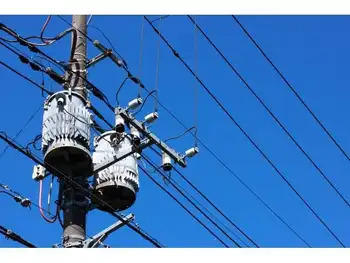Annual fee for EVs mulled
OLYMPIA, WASHINGTON - Drivers of electric cars may have left the gas pump behind, but there's one expense they may not be able to shake: paying to maintain the roads.
After years of urging residents to buy fuel-efficient cars and giving them tax breaks to do it, Washington state lawmakers are considering a measure to charge them a $100 annual fee — what would be the nation's first electric-car fee.
State lawmakers grappling with a $5 billion deficit are facing declining gas-tax revenue, which means less money to maintain or improve roads.
"Electric vehicles put just as much wear and tear on our roads as gas vehicles," said Democratic state Sen. Mary Margaret Haugen, the bill's lead sponsor. "This simply ensures that they contribute their fair share to the upkeep of our roads."
Other states are trying to find solutions to the same problem, as cars become more fuel-efficient and, now, don't use any gas at all.
In Oregon, lawmakers are considering a bill to charge drivers of electric and plug-in hybrid vehicles based on the number of miles they drive. In Mississippi, lawmakers briefly considered a similar plan. In Texas, significant opposition scuttled an electric-vehicle fee.
In Washington state, some electric-car drivers and lawmakers are against the fee, saying they prefer paying based on how much they actually drive.
"The Legislature saw electric vehicles are coming and thought, why not just put a fee on them?" said Dean West, an electric-vehicle owner who expects to receive a pre-ordered Leaf Nissan's new, battery-powered sedan this summer.
"I'm always in favor of a user fee," he said. "The more you use it, the more you pay."
Plug In America, a California-based electric-car advocacy group, has come out against the proposed flat fee and has urged the state to consider one based on odometer readings that owners would self-report each year.
"Electric vehicle drivers certainly want to pay their fair share," said Jay Friedland, the group's legislative director. "The danger you get into is if you treat electric vehicles in some radically different way than you treat the rest."
Of course, such use-based fees could end up costing drivers more.
Washington's 37.5-cents-per-gallon fuel tax costs the average driver about $200 a year, transportation officials say. That's equivalent to driving roughly 12,000 miles in a vehicle that gets 23 mpg.
That tax is added onto the total gasoline purchase, and is not dependent on the price of gas.
Supporters say the electric-vehicle fee would raise hundreds of thousands of dollars a year to support the state's public highway system.
In a report released last month, officials estimated that transportation revenues would decrease $25 million between the current biennium and the 2011-2013 budget period, largely due to dwindling gas-tax collections.
That decline has coincided with improved vehicle mileage and a drop-off in revenues from the last major round of statewide tax increases, more than five years ago, leaving lawmakers scrambling for solutions, said Sen. Dan Swecker, one of the co-sponsors of proposed fee.
"So the question is how do you account for those trends and begin to capture revenue that reflects the actual usage of the road?" said the Republican lawmaker, who estimated he pays about $400 a year in gas taxes for his Toyota Camry. "Our state doesn't change very fast. But we thought the $100 fee was a place to start, so let's start there."
Tracy Woodard, Nissan Motor Co.'s director of government affairs for North America, said her company is neutral on electric-surcharge legislation being considered in various states. She called for a larger discussion at the federal level of how to deal with reductions in gas-tax revenues.
"Obviously, we don't like to see barriers put up to getting electric cars on the road," she said. "But we understand people need to pay their fair share for using the roads."
An Oregon bill would charge drivers of electric and plug-in hybrid vehicles up to 1.43 cents for each mile they drive, beginning with cars from the 2014 model year. It would cost about $172 per year for a car driven 12,000 miles about the same as the gas tax paid for a vehicle that gets 21 mpg.
Related News

UK price cap on household energy bills expected to cost 89bn
LONDON - Liz Truss’s intervention to freeze energy prices for households for two years is expected to cost the government £89bn, according to the first major costing of the policy by the sector’s leading consultancy.
The analysis from Cornwall Insight, seen exclusively by the Guardian, shows the prime minister’s plan to tackle the cost of living crisis could cost as much as £140bn in a worst-case scenario.
Truss announced in early September that the average annual bill for a typical household would be capped at £2,500 to protect consumers from the intensifying cost of living crisis and a scheduled 80% rise in…




